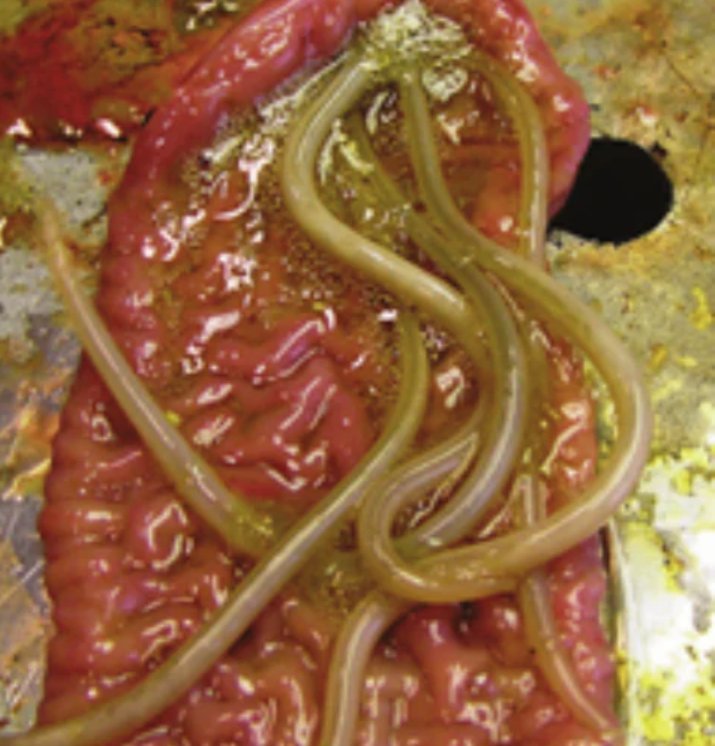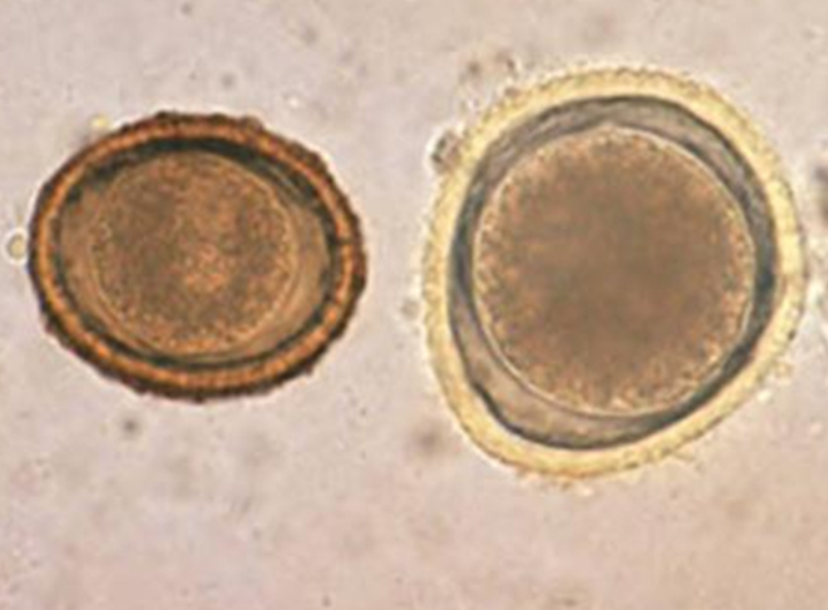Roundworm

Lo
Roundworm (Ascarids)
Parascaris equorum, commonly known as ascarids, are sizable, creamy white worms that can grow up to 40 cm in length.
They primarily affect foals and young horses under the age of four, as these animals have immature immune systems that are not yet capable of effectively combating infections.
While older horses can occasionally be impacted—particularly those that have grazed on pastures previously inhabited by infected young horses or those that have faced early life challenges—most adult horses exhibit a strong resistance to these parasites.
SYMPTOMS
Infections can be particularly harmful, especially in foals, which can quickly develop significant worm burdens, resulting in severe weakness, stunted growth, and potentially fatal outcomes.
Risks include intestinal blockage or inflammation, leading to either constipation or diarrhea, while migrating larvae that enter the lungs may cause bleeding.
Signs to watch for include lethargy, weight loss, coughing, a rough coat, or a distended abdomen.
PREVENTION
Effective pasture management, routine worm counts, and timely deworming are crucial. Ascarid eggs can persist in the soil for many years due to their resilient outer shell, which protects them from extreme temperatures and dry conditions.
- Remove manure from pastures 3-4 times weekly.
- Prevent overgrazing by limiting the number of horses in a field.
- Rotate grazing areas annually for mares and foals when feasible.
- Administer deworming treatments to foals every 6-8 weeks until they reach 6 months of age.
- Conduct regular worm counts thereafter and treat as necessary.

TREATMENT OF ROUNDWORM
Broad-spectrum dewormers are approved for treating roundworm; however, there is evidence of drug resistance to ivermectin and moxidectin, making them less effective.
It is advisable to use fenbendazole or pyrantel-based dewormers. Worm counts serve as an effective method for managing roundworm and should be performed every three months, with treatment administered based on the results.
This test assesses adult worms that are actively producing eggs, as immature roundworms do not lay eggs.
